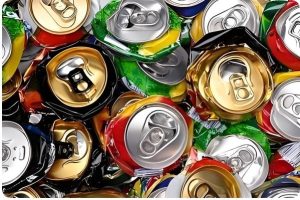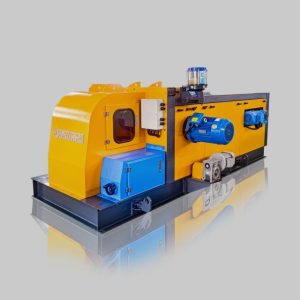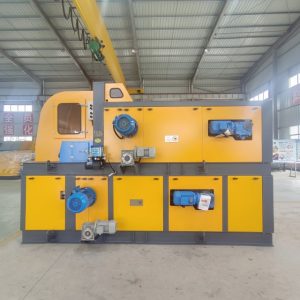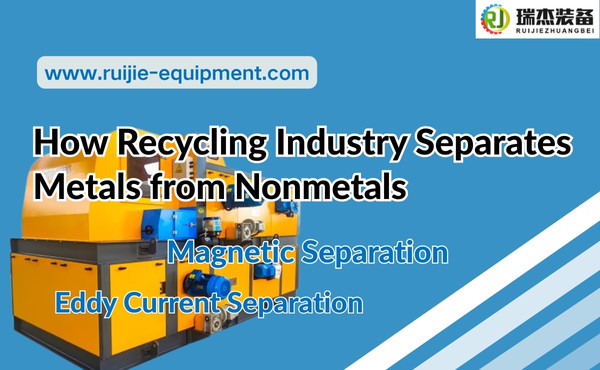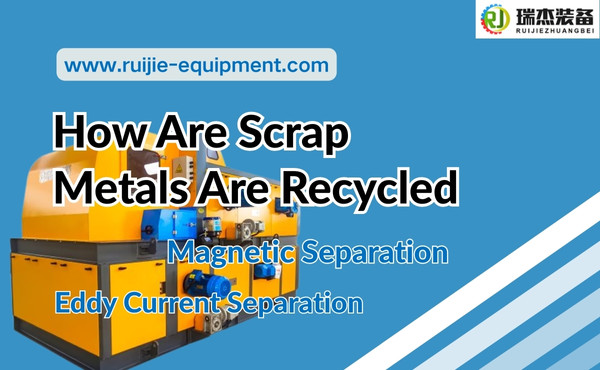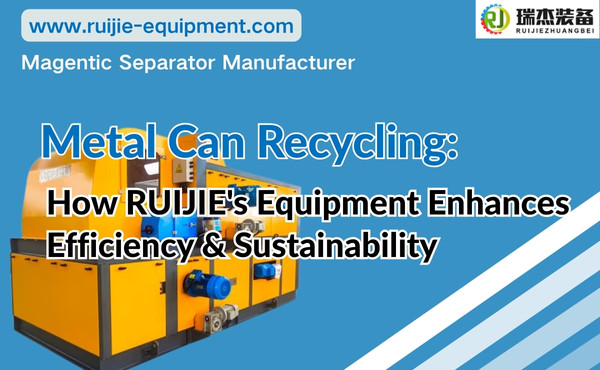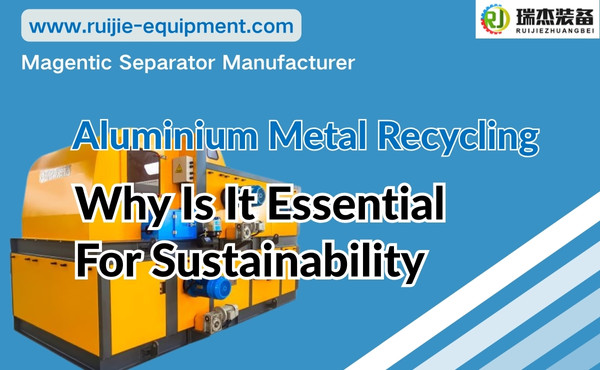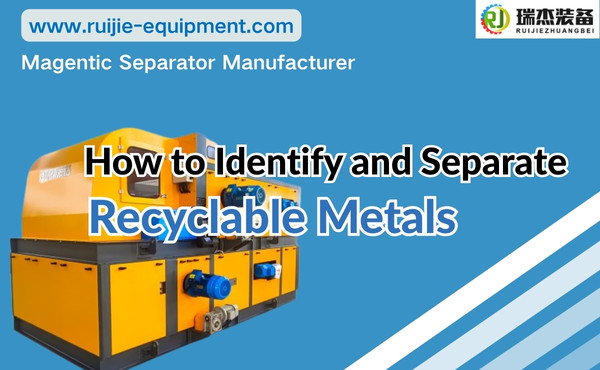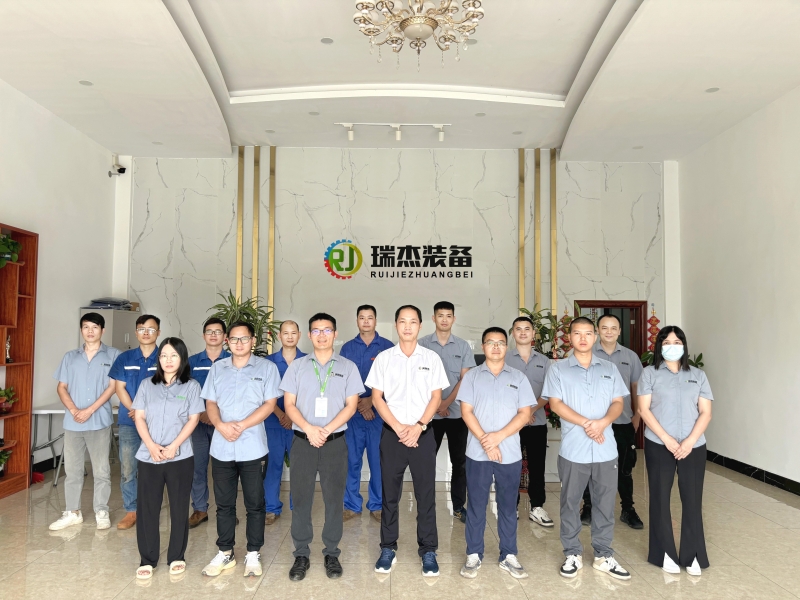Recycling metal cans plays a crucial role in reducing waste and conserving natural resources. However, achieving efficient recycling requires advanced technology to effectively separate different types of metals.
RUIJIE’s magnetic separators and eddy current separators are at the forefront of improving metal can recycling, enabling the accurate sorting of steel and aluminum cans, maximizing material recovery, and contributing to a more sustainable recycling process.
Types of Metal Cans and Their Recycling Importance
Metal cans are mainly made of two materials: aluminum and steel. Both are highly recyclable, but they require different methods of sorting during the recycling process.
Aluminum Cans:
These lightweight, rust-resistant cans are often used for beverages like soft drinks and energy drinks. Aluminum is infinitely recyclable, meaning it can be reused without losing its quality.
It is essential to separate aluminum cans from other metals to maintain this recycling efficiency. In addition, aluminum cans have a high recycling rate, and their recycling process saves significant energy compared to producing new aluminum.
Steel Cans:
Steel cans, typically used for food products like soups and pet food, are heavier than aluminum. They are also recyclable but require different sorting techniques compared to aluminum cans.
Steel is also an important material for recycling due to its high demand in manufacturing new products, including automotive parts and construction materials.
RUIJIE’s Role in Efficient Metal Can Recycling
RUIJIE’s magnetic separators and eddy current separators are designed to efficiently separate and process these two types of metal cans, ensuring a smooth recycling process. Here’s how each technology contributes to the process:
Magnetic Separation for Steel Cans
Magnetic separators are used to separate magnetic materials, such as steel cans, from non-magnetic materials. Steel cans are attracted to the magnets, while non-magnetic materials pass through.
This method ensures that steel cans are sorted accurately, preventing contamination in the recycling stream and increasing the overall recovery rate.
By utilizing high-strength magnets, RUIJIE’s equipment ensures maximum efficiency in separating steel materials, further improving the quality of the final recycled product.
Eddy Current Separation for Aluminum Cans
Since aluminum cans are non-magnetic, they cannot be separated using magnetic separators. Instead, eddy current separators are used. These machines generate a high-frequency magnetic field that induces currents in the aluminum, causing it to be repelled and separated from other materials.
This technology is ideal for separating non-ferrous metals like aluminum, ensuring that the aluminum cans are efficiently processed and prepared for recycling. Eddy current separators help streamline the sorting process, reducing the likelihood of contamination and improving the overall recovery rate.
Key Steps in Metal Can Recycling
- Pre-Sorting and Cleaning: Before metal cans are recycled, they must be cleaned and emptied of any remaining contents or liquids. Contaminants can damage recycling equipment or reduce the quality of the recycled material, making it more difficult to process.
- Crushing and Flattening: Some recycling facilities allow metal cans to be crushed or flattened to save space. However, this depends on local recycling program requirements. Flattening cans reduces storage space but may affect sorting at some facilities.
- Bulk Collection and Recycling: Large-scale collection of metal cans, particularly in industrial or business settings, requires specialized sorting equipment. RUIJIE’s separators—both magnetic and eddy current—are designed to handle bulk materials, ensuring efficient sorting and boosting recovery rates.
Benefits of Using Separators in Metal Can Recycling
RUIJIE’s advanced sorting technologies help recycling facilities achieve better results in metal can recovery. Here are some key advantages of using RUIJIE’s magnetic separators and eddy current separators:
- High Sorting Accuracy: Both technologies offer precise separation, reducing contamination and improving the quality of the recycled materials. Accurate sorting ensures that the final output meets the standards for reuse in various industries.
- Increased Efficiency: By automating the sorting process, RUIJIE’s equipment reduces labor costs and increases processing speed, allowing facilities to handle larger volumes of metal cans. This contributes to higher throughput in recycling operations.
- Cost-Effective: Efficient sorting leads to higher recovery rates and more material that can be recycled into new products, providing financial and environmental benefits. The reduced contamination levels also help lower the need for additional processing.
- Sustainability: RUIJIE’s equipment supports a sustainable recycling process by enhancing material recovery, reducing waste, and conserving natural resources. The more efficient recycling process means that fewer raw materials need to be mined, contributing to resource conservation.
Common Mistakes to Avoid in Metal Can Recycling
To ensure a successful recycling process, it’s important to avoid common mistakes:
- Failing to Empty Cans: Residual food or liquid in cans can contaminate the recycling stream, reducing the quality of the final material. This can damage sorting equipment and affect the overall recycling efficiency.
- Not Separating Materials Properly: Steel and aluminum cans need to be separated before recycling. Advanced equipment ensures that the materials are correctly sorted, enhancing the recycling process. Proper sorting ensures that different metals are processed in the most suitable way, leading to a higher recovery rate.
- Using Non-Recyclable Cans: Some cans contain mixed materials or hazardous substances that cannot be processed in recycling facilities. Always check local recycling guidelines to ensure the cans are recyclable. Non-recyclable cans can introduce harmful chemicals into the recycling process, disrupting the entire operation.
What Happens to Metal Cans After Recycling?
After metal cans are sorted, they are sent to recycling plants where they are melted down and reformed into new products. Aluminum cans are often reused to create new beverage cans, while steel cans can be repurposed for construction materials, automobile parts, and more.
In some cases, the recycled material is used to manufacture new metal cans, closing the recycling loop and contributing to a circular economy.
RUIJIE’s magnetic separators and eddy current separators ensure that these metals are separated efficiently, making the recycling process more effective and contributing to the circular economy.
Conclusion
Effective metal can recycling is essential for reducing waste and conserving valuable resources. By incorporating RUIJIE’s advanced equipment, recycling facilities can significantly improve their sorting efficiency, reduce contamination, and increase material recovery. These advanced technologies help create a more sustainable recycling process, benefiting both businesses and the environment.

